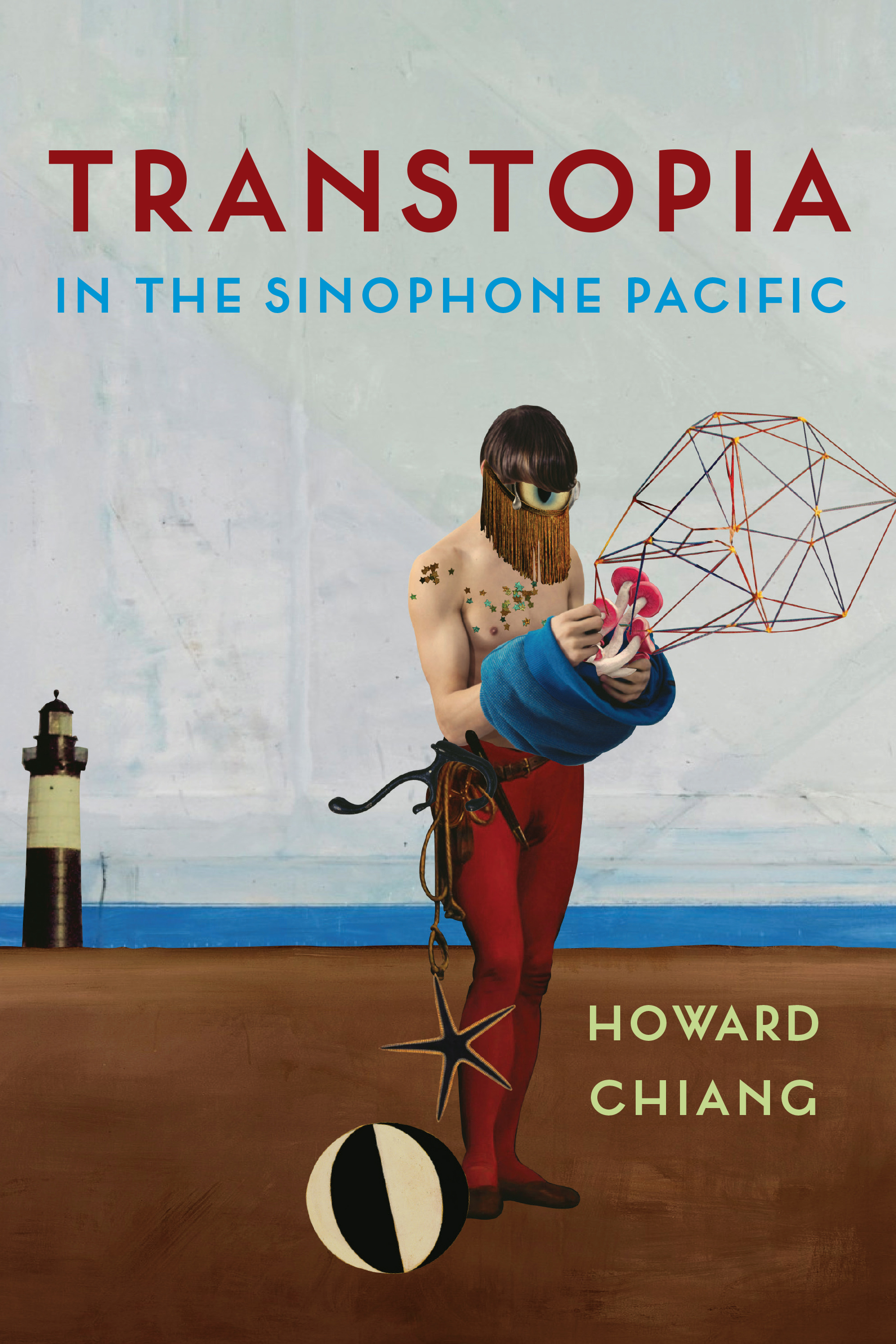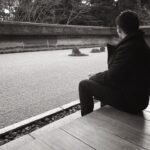Transtopia in the Sinophone Pacific proposes a new paradigm for doing transgender history in which geopolitics assumes central importance. Defined as the antidote to transphobia, transtopia challenges a minoritarian view of transgender experience and makes room for the variability of transness on a historical continuum.

NOTCHES: In a few sentences, what is your book about? Why will people want to read your book?
Howard Chiang: Transtopia in the Sinophone Pacific begins with a deceptively simple premise: trans studies needs to shed its Western-centrism in order for alternative histories of gender variance to come to light. The book asks us to consider geopolitics central to the writing of transgender history. To that end, I develop the concept of transtopia to refer to different scales of gender transgression not always recognizable through the Western notion of transgender.
By starting with neither an identitarian nor a destination-driven understanding of transgender, transtopia is concerned with less who qualifies as transgender, than how people relate to one another through the notion of transgender. If trans expressions are envisioned on a non-hierarchical spectrum, people’s mind can be opened to entertain stories of gender mutability that exceed the limits of our imagination. The book recounts such stories as the global response to sexologist Harry Benjamin’s (1885–1986) work, the history of a potent Chinese trans category called renyao (“human prodigy”), the featuring of castrated subjects in Sinophone cinema, and the history of transgender activism in the Asia Pacific.
NOTCHES: What drew you to this topic, and what questions do you still have?
Chiang: I often joke that Transtopia in the Sinophone Pacific can be treated as a postscript or sequel to my last book, After Eunuchs: Science, Medicine, and the Transformation of Sex in Modern China (2018). This is, of course, only partially true, and both books can be read independently. In terms of chronology, the bulk of Transtopia neatly follows the timespan covered in After Eunuchs. However, I would say that with respect to style and content, Transtopia is a very different kind of book. Because After Eunuchs evolved from my Ph.D. dissertation (completed at Princeton in 2012), it was invariably shaped by scholarly conventions and responded to disciplinary—especially historiographical—expectations. While working on Transtopia though, I had the blessing of being tenured, so I decided to be much more experimental in my approach to both research and writing. In fact, the book is divided into two halves: Part I is titled “Two Manifestos” and Part II is titled “Three Methods.” The first part delivers some bold propositions concerning categories of analysis and state-of-the-field reorientation. In the second part, readers witness these ideas in action.
Given its experimental nature, Transtopia is intended to enable conversations rather than claiming exhaustive coverage of trans histories in the Sinophone Pacific. One obvious question left unanswered is the way Southeast Asian communities, such as in Singapore, Malaysia, and Vietnam, can be historicized at the juncture where the politics of transness and the politics of Chineseness intersect. I eagerly await other experts to unveil the vibrant history of queer and trans Sinophone cultures in these often-marginalized regions.
NOTCHES: This book engages with histories of sex and sexuality, but what other themes does it speak to?
Chiang: In addition to transtopia, my book highlights another keyword for historical research: the Sinophone world, which refers to Sinitic-language communities and cultures outside or on the margins of China and Chineseness (one might compare it to the concept of the Anglophone or Francophone world). To distinguish Sinophone societies such as Taiwan and Hong Kong from the People’s Republic of China (PRC) is a long overdue task. This distinction is necessary to understanding the complexity of these locations, which bear a historically embedded but politically contested relationship to mainland China. (I should add, too, that the notion of nationalism does not always elucidate the political texture of these places. With Sinophone studies, we are at the cusp of rethinking geopolitical categories that are useful for historical analysis.)
Some of the key examples discussed in the book bespeak the importance of this demarcation. For instance, known as the “Chinese Christine,” Xie Jianshun (b. 1918), allegedly the first transsexual in the Sinophone world, received her sex reassignment surgeries in Taiwan, not Maoist China, in the 1950s. While renyao subjects completely disappeared from PRC public discourses, the Taiwanese press spotlighted renyao cases obsessively in the Cold War era. Despite the demise of castration circa the fall of the Qing dynasty (1644–1912), Chinese eunuchs have remained an object of fascination to both popular culture producers and consumers in Hong Kong since the 1980s. The first LGBTQ pride parade in the Sinophone world took place in Taipei in 2003, and it coincide with the formal legislation of the Gender Equity Education Act in 2004. In 2013, W v. Registrar of Marriages became a landmark ruling in LGBTQ rights in Hong Kong, and it set into motion a new phase of the transgender movement. None of these historical developments can be categorically subsumed under the rubric of “Chinese history,” despite the ongoing territorial claim of the Chinese Communist Party over Taiwan, Hong Kong, Xinjiang, and so on. With the rise of China in the twenty-first century, my book shows why it is important to critique PRC imperialism at the same time that we debunk the Western-centrism of trans studies.
NOTCHES: Why does this history matter today?
Chiang: I think the history documented in Transtopia matters today because with the rise of East Asian economies, a great deal is at stake in sexual politics. This is urgent as many Asian countries have fared poorly in human rights historically. The situation in Brunei and Indonesia, for instance, looks very grim. In the Sinosphere, we know that Taiwan became the first state in Asia to legalize same-sex marriage in 2019, but this constitutional revolution sits side-by-side with the gloomy uncertainty hanging over the future of Hong Kong and Xinjiang. The PRC government has been notorious for curtailing the scope of LGBTQ rights in the recent past, and this demands leftist Sinophile scholars in the West to stop romanticizing China and not just acknowledge but, more importantly, propose solutions to state sanctioned discriminations based on gender and sexual orientation in Chinese society.
Despite its aim to challenge Euro-American hegemony in queer studies, Transtopia offers Western trans theorist a rich vocabulary to counter such accusations as “trans studies is over.” Far from it, my book is a testament to the new and exciting ways by which cross-cultural trans studies continues to transform itself.
NOTCHES: Your book is published, what next?
Chiang: Having worked on the history of sexuality for more than 15 years, I am now shifting my focus to the historical and conceptual foundations of the human sciences, especially psychoanalysis, psychiatry, and cultural psychology. I will be spending the 2021–2022 academic year at the National Humanities Center working on a project that explores the history of psychoanalysis and transcultural reasoning across the Pacific. I have also developed a side project on the politics of queer archival knowledge in Maoist China.
 Howard Chiang is Associate Professor of History at the University of California, Davis. He is the author of Transtopia in the Sinophone Pacific (Columbia University Press, 2021) and After Eunuchs: Science, Medicine, and the Transformation of Sex in Modern China (Columbia University Press, 2018), which received the 2019 International Convention of Asia Scholars Humanities Book Prize and the 2020 Society for the Scientific Study of Sexuality’s Bonnie and Vern L. Bullough Book Award. He coedits (with James Welker) the “Global Queer Asias” book series published by the University of Michigan Press. He has served as the Founding Chair of the Society of Sinophone Studies since 2019.
Howard Chiang is Associate Professor of History at the University of California, Davis. He is the author of Transtopia in the Sinophone Pacific (Columbia University Press, 2021) and After Eunuchs: Science, Medicine, and the Transformation of Sex in Modern China (Columbia University Press, 2018), which received the 2019 International Convention of Asia Scholars Humanities Book Prize and the 2020 Society for the Scientific Study of Sexuality’s Bonnie and Vern L. Bullough Book Award. He coedits (with James Welker) the “Global Queer Asias” book series published by the University of Michigan Press. He has served as the Founding Chair of the Society of Sinophone Studies since 2019.

NOTCHES: (re)marks on the history of sexuality is licensed under a Creative Commons Attribution-NonCommercial-NoDerivatives 4.0 International License.
Based on a work at www.notchesblog.com.
For permission to publish any NOTCHES post in whole or in part please contact the editors at NotchesBlog@gmail.com




